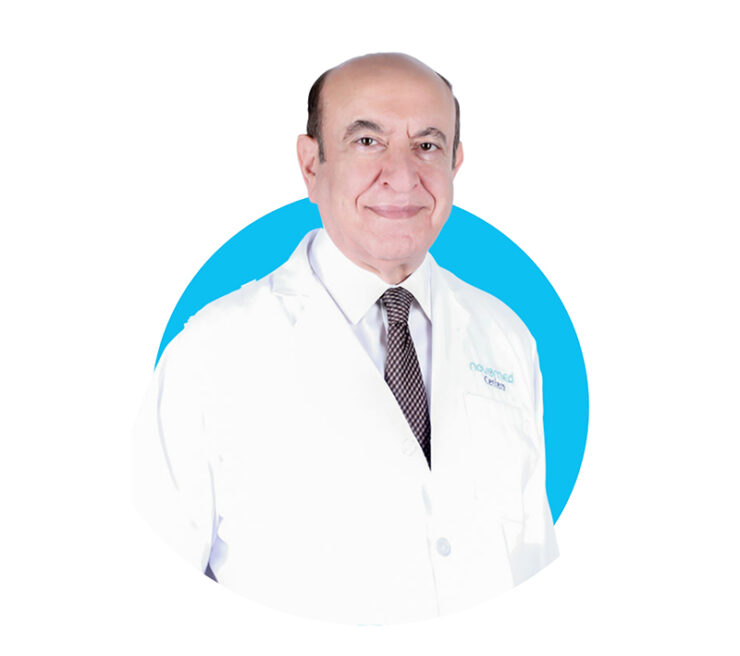Tonsillectomy in Dubai, Abu Dhabi and Al Ain
Overview
Tonsillectomy is the surgical removal of your tonsils, which are small glands on both sides of the back of the throat. They play a role in fighting infection and are only important during the first few years of life.
A tonsillectomy is performed to treat breathing problems (such as snoring and sleep apnea) and recurring throat infections that cause enlarged tonsils and a sore throat (such as tonsillitis and strep throat).
Our ENT doctors in Dubai provide the most advanced, minimally invasive tonsillectomy techniques to ensure minimal discomfort and smooth recovery.
What to expect before a tonsillectomy?
During the consultation, our ENT specialist will review your medical history, examine your tonsils and ask you about the medications you are taking and the allergies you have. They may also perform blood tests to check for any underlying causes of your swollen or inflamed tonsils.
They will advise you to stop taking certain medications for two weeks and refrain from eating after midnight the night before the surgery. You will also need to arrange for someone to give you a ride home after the procedure.
Our ENT surgeons have performed thousands of tonsillectomy procedures for children and adults and will take the time to understand your needs, discuss your concerns, explain your treatment options and answer your questions.
How is this procedure performed?
Tonsillectomy is performed as a day case, which means you will be able to leave the hospital and go home on the same day. It is done under a general anesthetic, which means you will be asleep for the entire procedure.
Tonsillectomy surgery can be performed in three different ways:
- Dissection
In this procedure, the tonsils are cut and removed using a scalpel, and dissolvable stitches are used to close the wound.
- Laser or Ultrasound
This method involves using high-precision laser beams or sound waves to vaporize the tonsil tissue and smooth the remaining surface. The advantages of this procedure are that it causes less pain, less bleeding, and requires a shorter recovery time compared to a dissection.
- Diathermy
In this procedure, the surgeon uses a high-frequency electrical current to excise the tonsil tissue and remove it instead of cutting the tonsils out.
A tonsillectomy usually takes around 30 to 45 minutes to complete. You’ll need to rest until the anesthesia has completely worn off before you can go home.
What happens after surgery?
Recovery after tonsillectomy usually takes about two weeks, during which you’ll experience pain in your throat, especially when swallowing. Other post-surgery side effects include a stiff jaw, bad breath, and a sore throat.
Our ENT surgeon will prescribe pain medications and recommend applying an ice pack to your throat to give you relief from the pain and help reduce swelling.
For the first two weeks after the procedure, you should eat soft foods, drink plenty of fluids and avoid coughing and clearing your throat.
Try to avoid talking unless necessary to reduce pain and discomfort, and it is recommended to take one or two weeks off work until you can talk normally without pain.
Our surgeon and medical team at Novomed are always available to offer support and guidance and help you during your recovery.
What are the expected results after surgery?
Although the tonsils are part of the immune system, their removal does not prevent the body’s ability to fight infections. Undergoing the procedure will lower the occurrence and severity of bacterial infections such as strep throat. It will also help you have improved breathing, sleeping, and quality of life.
Schedule your appointment at Novomed today!
If your tonsils are too large or experiencing recurrent infections that affect your quality of life, make an appointment with one of our highly qualified ENT doctors in Dubai to learn more about your condition and the treatment options.
Book your consultation today by calling toll-free 8006686, filling out the booking form, or clicking the live chat icon at the bottom of the screen.
The doctor may recommend a tonsillectomy if you have:
• recurrent tonsillitis, which can cause a severe sore throat, high temperature, and difficulty swallowing
• swollen tonsils that cause snoring or sleep apnea
• swollen tonsils that cause breathing or swallowing difficulties
• sore throats that affects your ability to work or carry out your daily activities.
Tonsil removal is often worse for adults for many reasons, most notably that surgery is more difficult on an adult because they have more scar tissue buildup on their tonsils that gets in the way during the surgery.
Tonsillitis typically occurs when children go to school as they come into contact with more germs and infections. This condition is less prevalent as the tonsils start to shrink in size. The peak incidence for tonsillectomy is age four to seven, and it is considered relatively uncommon after the age of fifteen.
After your child has had their tonsils removed, they will have some ear and throat pain for two weeks.
They may find swallowing difficult and be reluctant to eat some foods, but we advise that they start eating normally as soon as they can after the surgery as this helps heal the back of the throat. It is also important for them to drink lots of fluids.
It is important that your child brushes their teeth to keep their mouth free of infection, enable sore areas to heal more quickly, and freshen their breath.
We advise you to keep your child off school or nursery for a couple of weeks after the operation to avoid infections from others.
Tonsillitis is a tonsil infection that causes your tonsils to swell and cause a sore throat. Tonsillitis can also cause a fever and swollen glands in your neck. Your throat may be red, and your tonsils may be covered with a whitish or yellow coating.
The cost of the surgery will depend on the technique that will be used. You will receive full details about the cost of your tonsil removal surgery after you consult with one of our expert ENT surgeons



